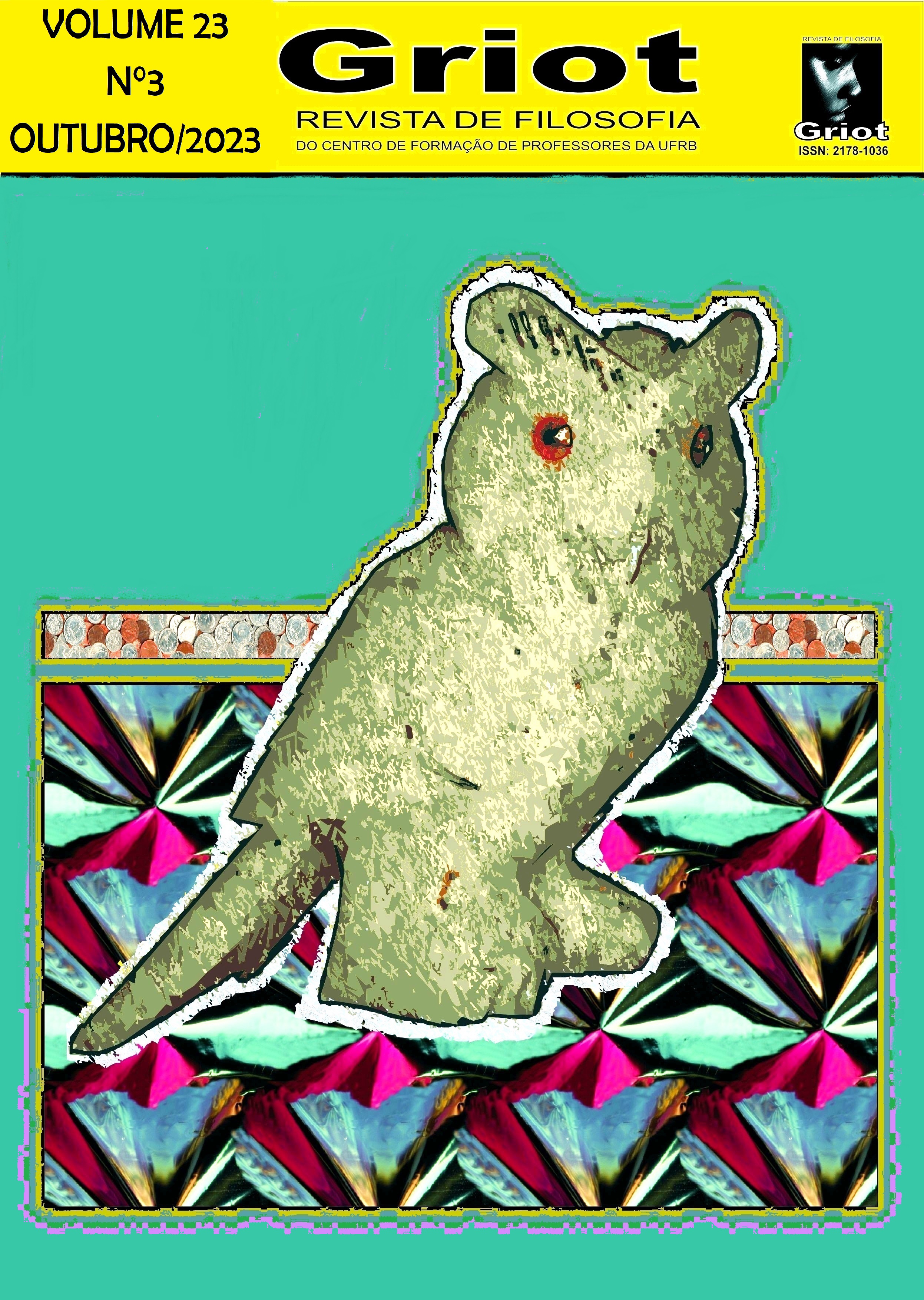Plato's mathematical “platonism”
DOI:
https://doi.org/10.31977/grirfi.v23i3.3411Keywords:
Mathematics Entities; Platonism; Intermediates; Divided line.Abstract
Several contemporary philosophers and mathematicians admit the existence of a branch of mathematical philosophy called “Platonism”, according to which mathematical entities - numbers, points, lines, planes, etc. - are things that exist in the world independently of us. In the specialized literature, it is common to understand that this philosophical thesis has its origins in Plato's theory of Forms. However, the statement that mathematical entities exist in themselves is not found in the philosophy of this Athenian philosopher, as observed in passage 509d and the following sections of his dialogue "The Republic." In reality, according to Plato's mathematical thinking, mathematical entities have an intermediate value, as we demonstrate in the following sections by "reconstructing" his reasoning of the “divided line”, based on excerpts from “The Republic”: (1) Book V: 477a-b, 477e, 478b, 478c, 478d; (2) Book VI: 509d-e, 510a, 510b, 510c-d, 510e, 511a, 511a-b, 511d, 511e; (3) Book VII: 533b-c, 534a.
Downloads
References
BERNAYS, P. On platonism in mathematics in P. Benacerraf e H. Putnam, eds., Philosophy of Mathematics. Cambridge: Cambridge University Press, 1983: 258–271.
COSTA, Newton C. A. Introdução aos Fundamentos da Matemática. São Paulo: Hucitec, 1977.
EVES, Howard. Introdução à história da matemática. Trad. Higyno H. Domingues. Campinas: Unicamp, 2004.
HEYTING, A. Intuitionism: An Introduction. Studies in Logic and the Foundations of Mathematics. Amsterdam: North-Holland Publishing Company, 1971.
KANT, Immanuel. Crítica da Razão Pura. Trad. Valério Rohden. São Paulo: Nova Cultura, 2000.
Lindström, Sten; Palmgren, Erik, Segerberg, Krister, Stoltenberg-Hansen, Viggo. Logicism, Intuitionism, and Formalism: What Has Become of Them? New York: Springer, 2009.
MURACHCO, Henrique. Língua Grega: visão semântica, lógica, orgânica. São Paulo: Vozes, 2007.
MCLARTY, Colin. Mathematical Platonism' Versus Gathering the Dead: What Socrates teaches Glaucon in Philosophia Mathematica (III), 13, 2005: 115– 134.
PLATO. The Republic (ΠΛΑΤΏΝ. “Πολιτεία”) Trad. Paul Shorey. London: Harvard University press, 2003.
Platão. A República de Platão. Trad. J. Guinsburg. São Paulo: Perspectiva, 2006.
QUINE, Willard Van Orman. Um Ponto de Vista Lógico: nove ensaios lógico-filosóficos. Tradução Antonio Ianni Sagatto. São Paulo: Unesp, 2011.
REALE, Giovanni. História da filosofia. Trad. Ivo Storniolo. São Paulo: Paulus, 2004.
SANTOS, José Trindade. Da Natureza: tradução, notas e comentários. São Paulo: Loyola, 2002.
VAN DALEN, D. Brouwer's Cambridge Lectures on Intuitionism. Cambridge: Cambridge University Press, 1981.
Downloads
Published
How to Cite
Issue
Section
License
Copyright (c) 2023 Rodrigo Ferreira

This work is licensed under a Creative Commons Attribution 4.0 International License.
The authors who publish in Griot: Revista de Filosofia maintain the copyright and grant the magazine the right of first publication, with the work simultaneously licensed under the Creative Commons Attribution 4.0 International License, allowing sharing and adaptation, even for commercial purposes, with due recognition of authorship and initial publication in this journal. Read more...









































































